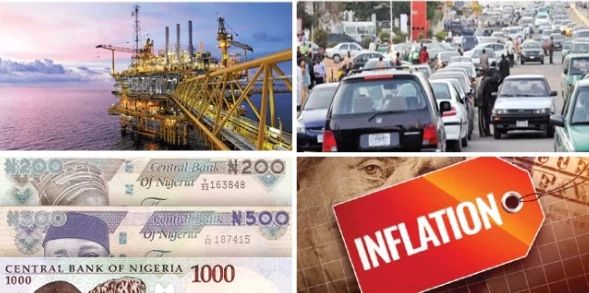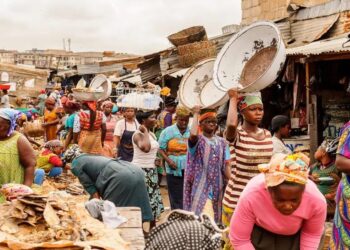With 2023 already on the horizon, and elections just around the corner, Nigeria is at a watershed on many counts. And some of them will be major determining factor of the direction of the Nigerian economy not just in 2023, but for a long time to come.
One of those factors will be the removal of the age-long subsidy removal of fuel. Whereas in the past, politicians shied away from discussing the issue as part of their political manifesto, the current three frontline candidates have all indicated their intention to remove fuel subsidy if elected.
Be it early or late, soft or hard, subsidy removal will have far-reaching effects on the Nigerian people and the economy.
Stakeholders are broadly optimistic regarding the possible removal of subsidies by June 2023 as it would be a net benefit for the oil and gas industry in terms of investments and reduced reliance on the federal government and related agencies on importation.
A lecturer at Auchi Polytechnic, Dr. Zakari Mohammed, told NATIONAL ECCONOMY that the ongoing implementation of the subsidy restricts the inflows into the remittance amount whilst also restraining the CBN’s ability to intervene in the I&E window and free up FX flows, which will support the ailing naira.
However, on the downside, the initial aftermath of the subsidy removal will see rising inflationary pressures in the short-term, as the general price level of food items, transportation, energy prices and other components of core inflation will trend upwards.
In H1-2022, the federal government has spent N1.6trillion (vs a total of N1.1tn NNPC remittances in H1-2022) on the subsidy programme to keep the price of petrol fixed. The federal government’s energy subsidy programmes continue to create a gaping hole in its finances.
Regarding investments, Mohammed said, “The reluctance to implement deregulation makes it largely unprofitable for insignificant oil marketers to import PMS amid Foreign Exchange (FX) pressures in the economy. In addition, the current price cap does not allow marketers to recover their initial costs, discouraging market players from engaging in wholesaler activities. Hence, they must rely on NNPC to import PMS, implying that all other marketers earn retailers’ margins.”
While acknowledging that the removal of fuel subsidies will inflict inflationary pressures on the economy, social affairs analyst, Dr. James Nwaobasi, said the population will adjust to the impact of inflation due to subsidy removal relatively quickly as the benefits of subsidy removal will easily outweigh the cost of inflation.
Commenting further, Nwaobasi said depending on how quickly the government begins to fix critical infrastructure and invest in social programmes such as health, education, transportation and women’s empowerment, the removal will have limiting effect on the cost of living. He sued for accountability on the part of the new government to win the confidence of the people.
2023 will also be momentous as the CBN introduces the novel cashless policy. Although the cashless transactions, introduced in 2011, had been growing over time, the CBN intends to enforce it in 2023.
The chief executive officer of the Center for the Promotion of Private Enterprise (CPPE), Dr. Muda Yusuf, stated that the cash in the Nigerian economic system is just about six percent of money supply. The enforcement of the cashless policy will have certain implications on the Nigerian economy in 2023 and beyond.
The policy, which was introduced by the CBN in December 2011 and kick-started in Lagos in January 2012, was adopted with questionnaire as data collection instrument. Responses from the respondents, based on research published by Greener Journals, showed that cashless policy will increase employment, reduce cash related robbery thereby reducing risk of carrying cash. The research also showed that cashless policy will reduce cash related corruption and attract more foreign investors to the country. The study, therefore, shows that the introduction of cashless economy in Nigeria can be seen as a step in the right direction. It is expected that its impact will be felt in modernisation of Nigeria payment system, reduction in the cost of banking services, reduction in high security and safety risks and also curb banking related corruptions.
However, Dr. Yusuf noted that you don’t fix what is not broken. He said the issues about cashless policy and withdrawal limits are no concern because you cannot be fighting inflation with naira redesign. He said there is a sharp correlation between money supply and inflation. He stated that the cash in the system is just about six per cent of money supply in the system. “So, if you have just six per cent of cash outside the system, it means 94 per cent of money in circulation is still within the banking system,” he said.
He said there is another measure of the adequacy of cash in an economy, which is called cash dominance in an economy, where you compare your cash to your GDP, because you need cash to support the economy. He said, “Cash to GDP in Nigeria is 1.8 per cent, while cash to GDP in many advanced countries is between five and 10 per cent. Hence, when you relate the cash in the Nigerian economy to GDP, it is nothing to worry about.” He stressed that as of today much of the transactions carried out in Nigeria are done by transfer.
He queried that people say 80 per cent of cash is outside the banking system, noting, where is it supposed to be? He also noted that it is money supply that influences monetary policy and inflation.
Yusuf said as of October money supply in Nigeria was about N50 trillion and the cash component of money supply is about N3.3 trillion. He stated that in terms of cashless transactions Nigeria has made more progress than many countries, stressing that the policy is the least of Nigeria’s problems.
He said electronic payment transaction as of October was N272 trillion; POS was over N6 trillion; mobile money transactions were almost N9 trillion.
Yusuf said it’s a non-issue, a distraction, a waste of the country’s resources and time. He said the vast majority of Nigerians are already doing cashless transactions; it’s a small minority of Nigerians using cash, especially in rural Nigeria, who should be left alone. He said it will disrupt the economy of rural Nigeria, as it seems there is a gross underestimation of the rural economy.
According to him, the cashless policy is not going to improve, but instead, slow down the economy, stressing that it is completely unnecessary because it will affect the velocity of transactions as the informal economy constitutes a large part of the economy. He said the distribution space of the economy is about 16 percent of GDP, which is more than N20 trillion, may be disrupted as a consequence of the cashless policy.
He cited that occasionally there are issues with transfer of cash due to poor network, stemming from poor infrastructure. He said there is very little value the limited withdrawal and naira redesign will add to the economy. “If anything, it’s going to impede growth of the economy,” he said.
Also reacting, Professor Murtala Sabo Sagagi of Dangote Business School, Bayero University, Kano, said the cashless policy is a welcome development. However, the following are worth considering:
Bank charges on every transfer: elites will not feel it but it’s a big concern to low-income earners
Account maintenance and alert charges apply in most banks and these reduce people’s balances.
Security of accounts: because the yahoo boys are ahead of the banks, not many people will put all their accounts on clouds
In many remote locations, it’ll take time to be covered by e-services.
Therefore, CBN needs to reflect these realities in its approach. Otherwise, people will be forced to keep cash even if they don’t need it.
The chief executive of Anthill Concepts, Dr. Emeka Okengwu, said Nigeria is a transactional economy, not a productive one as many of the goods traded in the country are imported, not produced. He noted that the rural economy is not adequately captured in the banking loop, which may pass to some extent as an underground economy.
He said the CBN did not say they are adopting a 100 per cent cashless policy; and by the mere fact that the apex bank has bulged by increasing the weekly withdrawals to N500,000 per week, it cannot be said that such a system is cashless, which means the purpose of cashless policy has been defeated. He considered the exercise work in progress.
Okengwu averred that he is not against the cashless policy, but against not understanding what needs to be done to get all Nigerians in the loop. He said adopting the new system will take time. For the early stage, he said Nigerians are going to have to live in a strange way.
On the other hand, he noted that 80 per cent of the time, the best of what one may be able to get off someone is N20,000, except the person was withdrawing on a daily basis in preparation for a particular transaction requiring cash.
Considering the foregoing, Dr. Felix Echekoba, who lectures in the Department of Banking and Finance at the Nnamdi Azikiwe University, said the country is not yet ripe for the new withdrawal limit and cashless policy. He cited lag in infrastructure to support the policy.
“Such a development will slow down transaction and trade velocity and ultimately, the economy,” he said.
Echekoba cited that the policy may put Nigerians who trade internationally in a weak position in relation to their international partners. He expressed fear that the development could scare foreign investors away from the country.
Kayode Johnson, a social affairs analyst, told NATIONAL ECONOMY that the only serious impact the policy might have on Nigeria is to curb the excesses of politicians as the 2023 elections approach.
Inflation, also a touching issue among Nigerians in recent times, has risen to 21.7 per cent as of the last data released by the National Bureau of Statistics. A projection by The Economist said, “Assuming no devaluations of the naira, we forecast that average consumer price inflation will slow to 15.1 per cent in 2023, from an estimated 19.3 per cent in 2022.”





